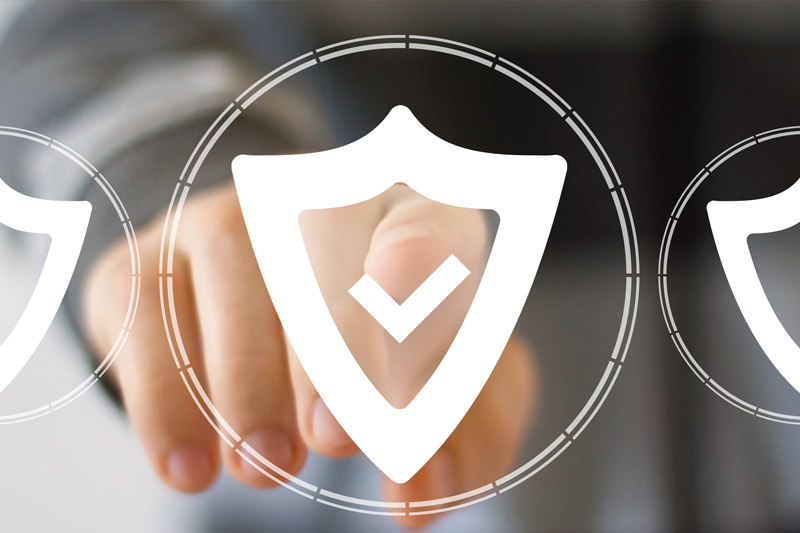02 June 2025
Be Fraud Aware
In today’s digital age, fraud is a serious problem that affects many people every day. Criminals are constantly looking for ways to take advantage of you so it’s essential to protect yourself and stay vigilant at all times.
At First Tech Credit Union, we take fraud prevention seriously and are committed to helping our members stay informed and protected. We’ve listed below some of the common types of online fraud and what steps you can take to avoid falling victim to it.
Types of Fraud
Also called ‘phishing’ emails. These are emails that are sent by fraudsters that appear to come from reputable companies, government departments or your bank. Fraudsters try to steal sensitive information from you such as your bank details or username and passwords. Fraudsters try to get you to act by creating a sense of urgency or warning you that your account has been compromised.
Also called 'vishing’ or voice phishing scams, these are a common way for criminals to steal money using various tricks to get your personal or financial information. These fraudsters use number spoofing to impersonate genuine organisations such as utility providers, banks or government departments. Using voice calls, they try to convince you to give them your personal or bank account PIN details or remote access to your computer. Many such calls are very subtle and can fool even cautious consumers.
Also called ‘smishing’ scams which is a combination of ‘SMS’ and ‘phishing’. This is a scam where fraudsters use SMS text messages on your mobile phone to trick you into clicking a malicious link or downloading harmful software. Like other types of scams, these deceptive messages appear to be from trusted sources such as a bank, a service provider or government department and they are often very difficult to spot. These fraudsters use tactics to trick you like creating a sense or urgency, curiosity or fear so get you to take an undesired action.
Scammers set up fake business profiles on social media that advertise very cheap products or that link through to a fake shopping website. To lure you in, they tailor their communications to you to match your interests. It can be hard to tell the difference between genuine profiles or ads on social media and the fake ads that you may encounter so you need to be vigilant.
This is where your personal information such as your PPS number, driving licence or banking details are stolen allowing fraudsters to pose as you. This allows them to use your information to obtain credit or purchase goods and services in your name, amongst other things. A major issue with identity theft is that the crimes committed by the fraudster can often be attributed to you and you may have difficulty applying got loans or a mortgage until the matter is resolved.
Card fraud occurs where hackers fraudulently acquire your credit and debit card details in an attempt to steal money or make purchases. To obtain these details, fraudsters often use too-good-to-be-true deals to trick you into giving them your details.
Mobile payment fraud is the unauthorised use of mobile payment services, such as Apple Pay or Goggle Wallet, to make purchases or transfer funds. This occurs where someone gains access to your mobile phone device or payment information.
Online shopping scams involve criminals setting up fake online stores or apps. They’re often advertised through social media and these fake stores can even appear in your search engine results.
These stores may be selling popular items such as clothing, footwear or electronics with fake discounts. The website or app may look legitimate but it may disappear within a few days or weeks. In some cases, you may receive counterfeit items but in others, you may receive nothing at all.
To protect yourself when shopping online:
- Look for a padlock symbol in the address bar to ensure the website is secure.
- Research the website for any negative reviews or red flags.
- Verify the contact details provided on the website.
- Avoid making direct bank transfers.
- Always ask yourself. Is this deal too good to be true?
Scams can come in many formats so always keep your account and login details safe and secure.
How to Protect Yourself
Please see below several ways you can protect yourself from phishing attacks:
Use Security Software
Make sure that your computer and mobile phone have up-to-date security software. This software can help detect and block phishing attempts before they reach you.
Update Passwords Regularly
Use strong, unique passwords for each of your accounts and change them regularly.
Enable Multi-Factor Authentication (MFA)
MFA adds more security to your accounts by requiring two or more verification methods to access them. This includes something you know (a password), something you have (a phone), or something you are (biometric verification).
Be Cautious with Links and Attachments
Don’t click on links or download attachments from unknown sources. If you receive an unsolicited message, verify its legitimacy by contacting the organisation directly.
Monitor Your Accounts Regularly
Check your bank statements and online accounts regularly for any unauthorised transactions. Early detection is very important in mitigating any potential losses.
Delete the Email: Do not respond to the email or message; simply delete it.
Change Your Passwords Immediately: If you provided any login credentials, change those passwords right away.
Contact Us: Contact First Tech Credit Union about the incident so we can monitor your account for any suspicious activity. You can call us on 01 642 7900 or email us at info@firsttech.ie
Report the Incident: Report phishing attempts to local authorities or organisations like An Garda Síochána or the National Cyber Security Centre (NCSC) in Ireland.
Remember
First Tech Credit Union will NEVER ask you for your login information or any other personal information via email or text message.
If you are in any doubt about any message that you receive in relation to your First Tech Credit Union account, please contact us directly on 01 642 7900 or email info@firsttech.ie.
Make sure to use the new Scam Checker on Fraud Smart’s website.
Stay safe, stay alert.






